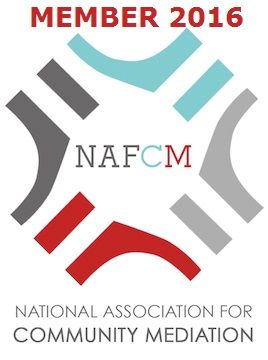Have you ever had a question and didn’t know where to find the answer? If so, you’ve come to the right place. This section is a compilation of answers to the questions most commonly asked by our constituents. Just start by following one of the links below.
If you can’t find the question you wanted to ask, don’t hesitate to contact us.
-
What is Mediation?
Mediation is a process in which two or more parties agree to meet with a trained mediator to resolve differences through discussion, negotiation, and mutual problem solving. Mediation allows participants to develop their own solutions. The process is designed to be more timely and less costly. Mediation is voluntary and confidential.
-
Who May Request Mediation?
Any person may request mediation. When all concerned parties agree to voluntarily participate, a mediation session is scheduled. The Resolution Center's services are available to individuals, organizations, businesses, and agencies in a 16 county area in southeast Nebraska, including: Butler, Cass, Fillmore, Gage, Jefferson, Johnson, Nemaha, Otoe, Pawnee, Polk, Richardson, Saline, Saunders, Seward, Thayer, and York.
-
Why Should I Participate in Mediation?
Mediation:
-Is private and confidential.
-Fosters better communication and improved relationships through constructive problem solving.
-Enables parties to create their own solutions and control the outcome.
-Can be scheduled in the daytime, evening, or weekends at a location convenient for the parties. -
What Happens in a Mediation Session?
Each party is asked to describe the problem as he or she sees it. The mediator asks questions in order to help the participants identify needs and interests, and to clarify issues. Possible solutions are generated and explored. If a solution is reached, the parties may ask the mediator to write out their agreement to sign. Parties are encouraged to have their agreement reviewed by legal counsel.
-
How Long Will the Mediation Process Take?
A mediator will first meet with each party individually. This first initial session generally takes 30 to 60 minutes. Once both parties have met with a mediator, a two-hour session will be scheduled. The number of sessions depends on the complexity of the case. Usually, a parenting plan includes the initial session plus one or two additional sessions.
-
Is There a Fee?
Yes. Using a sliding scale, fees are determined by household size and income. No individual will be denied services due to inability to pay.
-
Who Are the Mediators?
Mediators are professionally trained people, from various professional backgrounds, who help you talk constructively with the other party. Mediators do not make decisions nor give advice. To help you make informed decisions, the mediator may suggest you consult with legal, financial, or other experts.
-
Can I Still Have an Attorney?
Yes. Consulting with an attorney is always advisable and encouraged. Attorneys provide a valuable service as you prepare for mediation, during the negotiation phase, and to review any draft agreement developed.
Mediators cannot give legal advice.





